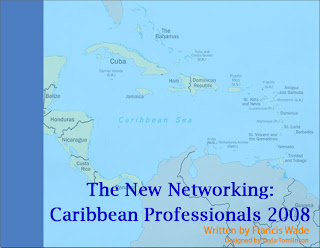 Here in the Caribbean, there are a number of business anomalies that I have detected that I can only attribute to our rather unique history. They have to do with practices that I see managers repeat, even when it’s clear that they don’t produce results.
Here in the Caribbean, there are a number of business anomalies that I have detected that I can only attribute to our rather unique history. They have to do with practices that I see managers repeat, even when it’s clear that they don’t produce results.
Hiring for the Body-Count
Managers across the region make the mistake of hiring too many of the wrong employees, focusing on appearances over results and putting pride before profits.
It seems to me that too many of our companies refuse to act on the notion that a handful of skilled employees are able to outperform a much larger number of those who are unskilled. There seem to be at least two reasons why this situation persists.
The first is historical — the economies of old were built for the most part on unskilled, unmotivated labour. A handful of mostly skilled managers from Europe had experience in agriculture, business and trade, but workforces comprising Africans, Indians and Chinese were brought in large numbers regardless of their skills, and in most cases forced to work at the point of a gun. The solution then, and now, was to throw more people
at jobs until they could be completed.
The second reason the situation persists is that companies don’t understand that there is a vast difference between hiring 10 people for 100 days each, and hiring 100 people for 1 day.
The difference has to do with what is called “The Mythical Man-Month” which is a fact of knowledge work. Work that requires communication and coordination becomes more difficult when an additional person is
added because that person’s relationship with every other person must now be managed. In other words, the 10th person added to a team bring with him/her 10 x 10 new communication links that must be managed, while the hundredth person added requires 100 x 100 new
links.
The increase in communication complexity grows exponentially with each person added.
A manager who decides to hire more people, rather than to obtain more skilled workers is only making things more difficult for himself.
In other words, it makes better economic sense to hire a small group of high performers to replace a larger group of low performers, even if the output of both groups is the same and the total wage bill is equal. From the manager’s perspective, it’s easier to manage a small group than a large one.
This fact seems to be lost on our regional companies.
Focusing on Effort vs. Deliverables
Flexi-time has been long in coming to the region, and as far as I can tell it has something to do with not being able to manage for results.
A manager who places an ad in the paper in order to fill a vacancy will only fill it with a full-time employee, and won’t consider an employee who is willing to work for 4 days at 10 hours each, or even a part-time arrangement with someone who is highly skilled.
The reasons could be varied, but I imagine that the overriding cause has something to do with a fear of doing something unconventional, and perhaps “getting in trouble” with her own boss. Although it might make economic sense, company politics sometimes turn common-sense upside down.
The most unfortunate consequence of these decisions is that employees quickly learn that management is more interested in appearances than actual results. “Looking good,” and the avoidance of “looking bad”
seem to be the most powerful motivators of all.
Pride vs. Profits
It’s an interesting phenomena — retailers across the region never seem to have sales the way their counterparts in the US and other developed countries do.
The problem seems to be one of pride.
The thinking goes like this: “I paid $X for this item and there is no way I am going to sell it for less than $Y.” This thinking prevails even then the item has been gathering dust on the shelf for months.
It’s a simple mistake in business economics — it’s better to have $2.00 in pocket now than it is to pay to carry an item on the shelf for several months that may not sell.
The mistake is an easy one to correct in practice.
However, the feeling of failure that comes from discounting the item is often too much to bear, along with any embarrassment and loss of face that might come from admitting that a mistake was made. Instead, it seems that many retailers just keep the item on the shelf, act as if everything is OK, and their employees comply by
keeping their mouths shut.
After all, for most of us, it’s easier to lose money than it is to lose respect. Unfortunately, retailers usually don’t have someone in their face telling them that their pride is costing the company too much money!




